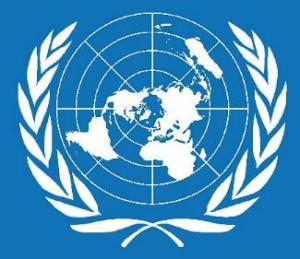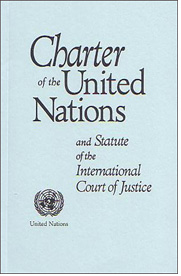By Roddy Howald
September 28, 2009
Trying to stay on top of international political actions and law makers can be confusing. Where to go for the best current information is always an annoyance. However this article should point you in the right direction, but the real question that I believe people should ask in all of these discussions among nations is this, “Is there a War on Slavery?” To begin here’s a quick rundown concerning where the responsibility has landed in recent years. On 1 January 2008, responsibility for servicing the Committee on the Elimination of Discrimination against Women has been transferred to the Office of the High Commissioner for Human Rights in Geneva. However the CEDAW did not disappear, it’s just taken on more of a fact finding focus.
CEDAW
The Committee on the Elimination of Discrimination against Women (CEDAW) is the body of independent experts that monitors implementation of the Convention on the Elimination of All Forms of Discrimination against Women. Currently, the CEDAW Committee consists of 23 experts on women’s rights from around the world.
Member Nations whom are party to the treaty (States parties) are required to submit regular reports to the Committee to detail how the rights of the Convention are being implemented. These reports provide the Committee with the necessary real world applications and ideas to address concerns and recommendations referred to as concluding observations.
Under the “Office of the United Nations High Commissioner for Human Rights” in a UN General Assembly, held on February 20, 2009, an important report was put forth on March 17, 2009. The following quote is from page 5 of this 27 page PDF (click here to download).
Mandate of the Special Rapporteur on Trafficking In Persons, Especially Women and Children:
Overview of the Problem of Trafficking
“The world today is confronted with a huge human trafficking problem, driven by the same forces that drive the globalization of markets, as there is no lack of demand and supply. In varying degrees and circumstances, men, women and children all over the world are victims of what has become a modern day slave trade. As one of the fastest growing criminal activities in the world, trafficking in persons results in serious breaches of human rights and dignity of trafficked persons. The analysis of the questionnaire sent to Governments by the Special Rapporteur clearly shows that almost every country of the world is affected either as a source, transit, and/or destination country for women, children, and men trafficked for the purposes of sexual or labour exploitation (domestic servitude and bonded labour). Trafficking occurs within and across national borders, often with one consignment of people crossing many borders to reach their final destination.”
This report is extremely telling and should drive us to action. Unfortunately as we are all learning in this fight – no country is exempt and as you we further glean from this report, the crime is changing once again. While the focus of human trafficking tends to be sexual exploitation, unfortunately research is pointed toward the human as a commodity at a much deeper level – the removal of organs or “organ harvesting”. Not only do we have the issue of people facing a life of pain, we now have the issue of life prematurely ending because they possessed genome markers compatible with the party making payment.
In a press release regarding the country of Japan on July 17, 2009 the special Rapporteur made this all encompassing statement:
“Nevertheless, the UN independent expert notes that there are challenges that Japan must address in order to effectively combat trafficking in human beings occurring within its borders and affecting both its citizens and foreign nationals.
Among them, the Special Rapporteur highlights the non-ratification of relevant international treaties; the unclear identification procedure which may lead to mis-identification of victims of trafficking; the lack of appropriate shelters with adequate assistance to victims of trafficking; the abuses within the foreign trainees programme; and the lack of appropriate training of and coordination among relevant law enforcement officials.
In this regard, the Special Rapporteur shared some preliminary recommendations, including the urgent ratification of relevant international treaties; establishing a national rapporteur office on trafficking; strengthening labour inspections; strengthening the services provided to victims of trafficking; creating a special fund for compensations; and improving partnerships between government agencies and NGO’s.”
My question or concern here is “the non-ratification of relevant international treaties”. Wouldn’t you think that this would be an easy first step to take? Perhaps it’s an egocentric problem of perception that I’m experiencing, but why is it that in the year 2009 slavery is still a problem that member nations of the UN are not addressing? For example, the UN has a function and charter that all members are to abide by and furthermore we’ve had a dedicated Human Rights Commission for over 50 years now (the OHCHR). Here is their stated mission:
“The United Nations Commission on Human Rights was established in 1946 to weave the international legal fabric that protects our fundamental rights and freedoms. Composed of 53 States members, its brief expanded over time to allow it to respond to the whole range of human rights problems and it set standards to govern the conduct of States. It also acted as a forum where countries large and small, non-governmental groups and human rights defenders from around the world voiced their concerns.”
Alright, well since it’s composed of 53 members, perhaps a nation can be a member of the United Nations and not abide Human Rights – or in our case here – stand against modern day slavery. No, it appears that issue is covered in immediately in the UN Charter, which all Member Nations have to agree to and sign:
WE THE PEOPLES OF THE UNITED NATIONS DETERMINED
To save succeeding generations from the scourge of war, which twice in our lifetime has brought untold sorrow to mankind, and
To reaffirm faith in fundamental human rights, in the dignity and worth of the human person, in the equal rights of men and women and of nations large and small, and
To establish conditions under which justice and respect for the obligations arising from treaties and other sources of international law can be maintained, and
To promote social progress and better standards of life … etc.
This is all before Article one. The points listed above are simply the Introductory note after the Table of Contents. Well that’s a bit like a Preface and since a lot of people skip over that perhaps it’s not that important, but wait there’s more. The ever elusive Chapter one, Article one, which is as you will read below is only four points, two of which focus on human rights:
CHAPTER I
PURPOSES AND PRINCIPLES
Article 1
The Purposes of the United Nations are:
1. To maintain international peace and security, and to that end: to take effective collective measures for the prevention and removal of threats to the peace, and for the suppression of acts of aggression or other breaches of the peace, and to bring about by peaceful means, and in conformity with the principles of justice and international law, adjustment or settlement of international disputes or situations which might lead to a breach of the peace;
2. To develop friendly relations among nations based on respect for the principle of equal rights and self-determination of peoples, and to take other appropriate measures to strengthen universal peace;
3. To achieve international co-operation in solving international problems of an economic, social, cultural, or humanitarian character, and in promoting and encouraging respect for human rights and for fundamental freedoms for all without distinction as to race, sex, language, or religion; and
4. To be a centre for harmonizing the actions of nations in the attainment of these common ends.
Well again, just because that is the goal of the organization doesn’t mean that each member nation has to abide by these goals. After all aren’t these ideals that nations are to aspire to? Well it is a work of law so perhaps it depends how you read the matter. So what does determine membership?
CHAPTER II
MEMBERSHIP
Article 4
1. Membership in the United Nations is open to all other peace-loving states which accept the obligations contained in the present Charter and, in the judgment of the Organization, are able and willing to carry out these obligations.
2. The admission of any such state to membership in the United Nations will be effected by a decision of the General Assembly upon the recommendation of the Security Council.
So it seems pretty clear. If you are a member of the UN, you are accepted because your country has both the capacity and desire to further human rights, but yet if the Special Rapporteur is correct in his assessment, there exist member nations that are not even bothering to ratify relevant international treaties and are doing nothing whatsoever to deter (let alone prosecute) people trafficking human beings in and through their country.
As far as I can tell, despite all the good that is being achieved in this fight, the UN is not addressing Human Trafficking to the extent that it should. There is no War on Slavery! The view of people being another’s property is very much alive and well. Worse still, the international body assembled for the purpose of furthering human rights is clearly turning a blind eye to the problem. Just as we witness in the United States on hotly debated topics ranging from gun ownership to illegal aliens, it’s not the laws on the books that matter, it’s the laws that are enforced. When the public cries out enough for the lack of competency, our elected officials answer the problem – not with decisive action, but with specially appointed task force discovery committees, press conferences for the newly appointed person or paper, and finally with more laws.
What is the point of having an international body, possessing specific aims and ideals, requiring potential member nations to have the needed qualities, but then ignore their ongoing acts of omission. I think that most of us would agree that deciding to do nothing is an action. Let us not DO the same.
For updates of blog postings you can follow Roddy Howald on Twitter at SlaveWar
Sources:
- United Nations Charter
- Division for the Advancement of Women, Department of Economic and Social Affairs
- Convention on the Elimination of All Forms of Discrimination Against Women
- UN General Assembly, 10th Session, Agenda Item 3, HR-10-16, Promotion and Protection of All Human Rights, Civil, Political, Economic, Social and Cultural Rights, Including the Right to Development.

